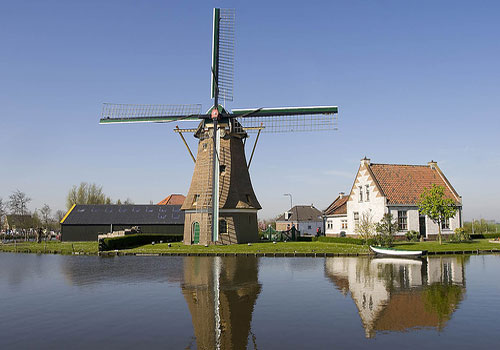| Reply to Thread New Thread |
|
|
#21 |
|
|
Brits and Finns(well, at least the ones I met online) are probably my favorite Euros. The Germanics, the French, the Russians, and the Italians are also pretty cool. The rest I can sort of take or leave. I don't care, all people are people, no matter where they're from. I don't feel that there's any singular European entity, and I certainly don't feel that we're the same as other Euros. I don't really think of Scandinavians as Europeans, but more like a separate entity. |
|
|
|
|
#23 |
|
|
It's really strange-- a lot of my friends IRL are Europeans. In college I hung out with the "international" crowd. And my American friends tend to be well-traveled. I am not well traveled myself, but I am attracted to worldly types. Guess that is why I spend time on this board, heh.
Yeah, I like Europeans. I like that they are more worldly and secular than Americans. Americans in general, in my area at least, have a more religious perspective that I clash with sometimes. (Despite being a wishy-washy Christian myself). Europeans definitely have more of an interest in the world, on a broader scale, than southern Americans do. |
|
|
|
|
#25 |
|
|
|
|
|
|
|
#28 |
|
|
In what way? Denmark is bordering to Germany. I assure you, you have more in common with people from Germany and the Netherlands than to people in northern Scandinavia. |
|
|
|
|
#29 |
|
|
|
|
|
|
|
#30 |
|
|
|
|
|
|
|
#31 |
|
|
|
|
|
|
|
#32 |
|
|
I've touched on this before: I find many Europeans to be arrogant and don't think they are as worldly as they think they are. I like them overall, though.
I guess it depends on their political views. It seems that the further to the left they lean politically, the more arrogant and less worldly they are. Kind of like North Americans but on this side of the world it's right-wingers who are arrogant and not worldly. I |
|
|
|
|
#33 |
|
|
I cannot answer because Europe is only a geographical thing, not cultural. |
|
|
|
|
#34 |
|
|
In what way? Denmark is bordering to Germany. I assure you, you have more in common with people from Germany and the Netherlands than to people in northern Scandinavia. We do not have more similarity with German than Scandinavians. I don't care about the northernmost areas, as there's only around two people there. Who cares? |
|
|
|
|
#35 |
|
|
Many Brits also feel that they aren't Europeans. The consider Europe as "other".  We do not have more similarity with German than Scandinavians. I don't care about the northernmost areas, as there's only around two people there. Who cares?  Netherlands  Scandinavia  Anyways, I can understand a feeling of a south Scandinavian unitedness but nothing more than that. |
|
|
|
|
#36 |
|
|
|
|
|
|
|
#37 |
|
|
|
|
|
|
|
#38 |
|
|
No, nothing. I'm part Finnish myself. It's just that most Mideasterners and Mediterraneans don't go that well with Finns. An old Finnish friend of mine (raised in Australia) managed to befriend many people from South Europe and the Middle-East, but he certainly kept the attitudes he himself described as "Finnish to the bone". Mutual understanding of cultural differences goes a long way. Certainly, this is stating the obvious, but sometimes folks lose scope over such things. * Not all those features apply to all Near-Eastern/Mediterranean cultures. |
|
|
|
|
#39 |
|
|
Anyways, I can understand a feeling of a south Scandinavian unitedness but nothing more than that. Scandinavia is a cultural, historical and ethno-linguistic region in northern Europe that includes the three kingdoms of Denmark, Norway and Sweden, characterized by their common ethno-cultural heritage and language. The vast majority of the human population of Scandinavia are Scandinavians, descended from several (North) Germanic tribes who originally inhabited the southern part of Scandinavia and what is now Denmark, who spoke a Germanic language that evolved into Old Norse and who were known as Norsemen in the Early Middle Ages. In the late Early Middle Ages, numerous Northern Germanic petty kingdoms and chiefdoms were unified into three kingdoms, Denmark, Norway and Sweden, and Christianity was adopted, replacing Norse mythology, itself a subset of Germanic paganism. Scandinavia has, despite many wars over the years since the formation of the three kingdoms, been politically and culturally close. The constellations and alliances, however, have shifted over the centuries. For all of the 15th century, Scandinavia was united in the Kalmar Union. The Danish, Norwegian, and Swedish languages form a dialect continuum and are known as the Scandinavian languages—all of which are considered mutually intelligible with each other. |
|
|
|
|
#40 |
|
|
|
|
|
| Reply to Thread New Thread |
«
Previous Thread
|
Next Thread
»
| Currently Active Users Viewing This Thread: 1 (0 members and 1 guests) | |
|
|






 Linear Mode
Linear Mode


